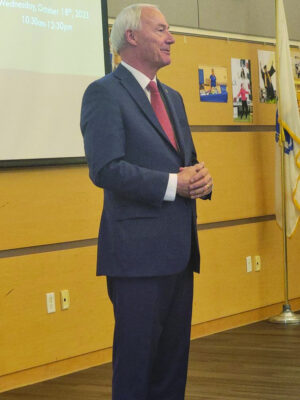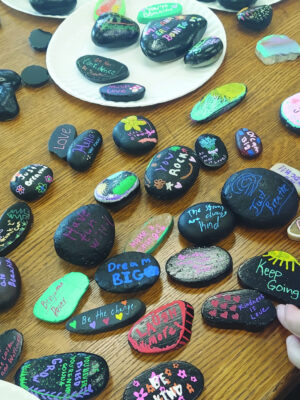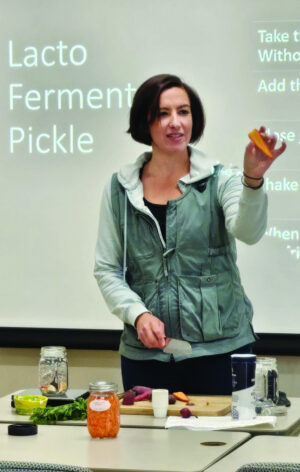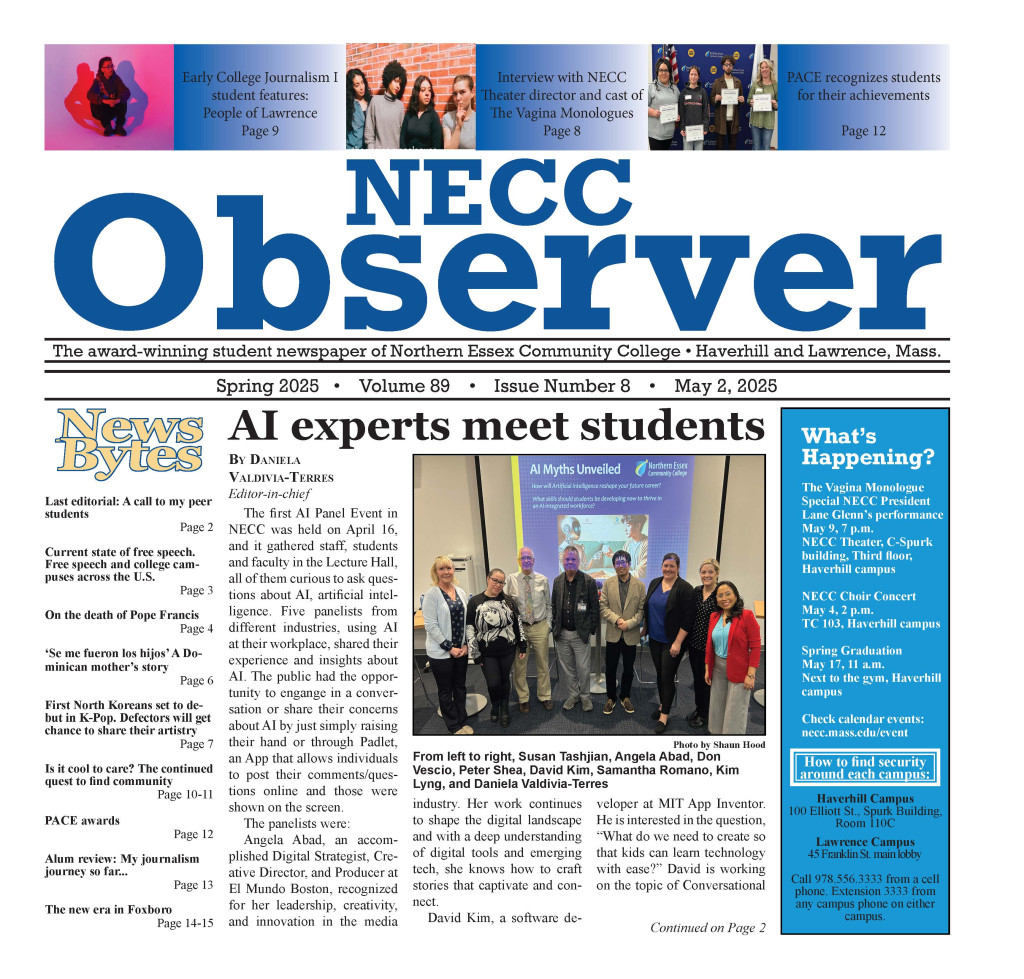The 2024 election will be here before you know it. Unfortunately, Donald Trump will most likely be the republican nominee for president. There are so many reasons not to vote for Donald Trump and here are 25 reasons NOT to vote for the disgraced former president.
1) Trump was found liable for battery and defamation by a federal jury in New York for raping writer E. Jean Carroll in a department store dressing room in the mid-1990s. The former disgraced president had claimed that” he never met her” and “she’s not my type.” During his deposition, Carroll’s lawyer asked Trump to identify the people in a photo. Trump pointed to Carroll and confused her with his second wife Marla Maples. At the time the rape occurred Carol was 100% “his type.” He was ordered to pay Carroll $5 million in damages but will owe more since the day after the jury found him liable he went on C.N.N. and defamed her all over again.
2) Donald Trump has already been found guilty of fraud in a civil case in New York brought by Attorney General Letitia James. Trump would inflate his assets to get higher terms on loans based on his property value. Trump, for example, told banks his apartment in Trump Tower was 30,000 square feet. The reality is his apartment is only 10,996 square feet. Then the tax cheat would deflate the value of his property to avoid paying higher taxes. A.G. James’s is suing for 250 million dollars but what really has Trump upset is he is not on Forbes 100 richest people in America anymore.
3) Trump was indicted by a federal grand jury in Washington, DC, for conspiring to overturn the 2020 presidential election, interrupt Congress and deprive Americans of their right to vote. Trump spread the big lie to make his supporters think the 2020 election was stolen. He summoned a crowd to the Ellipse and fired them up and told them to march to the Capital or they wouldn’t have a country. Five people died because of January 6 and 138 were injured, many severely. Trump pleaded not guilty and faces up to 20 years in prison if convicted.
4) Trump was charged by a federal grand jury in Florida for mishandling classified documents from his White House and obstructing the investigation into them. He allegedly shared a classified map with visitors and stored boxes of records in his Mar-a-Lago estate, including in a ballroom, bathroom, and shower. He could have completely avoided the indictment if he had just given back the documents when the National Archives asked for them back. You must wonder what the motive was for him not to give them back? Last week a billionaire, who belonged to the Mar-a-Lago club Trump owns, stated publicly that Trump shared our nuclear submarines capabilities with him. Trump can not be trusted with American Secrets let alone the nuclear codes.
5) Trump was indicted by a grand jury in Georgia for interfering with the 2020 election results in the state. He allegedly tried to pressure state officials to overturn Biden’s victory and used fake GOP electors to challenge the certification of the electoral votes. Four out of 19 of his co-defendants, Sidney Powell, Jenna Ellis, Scott Hall, and Kenneth Chesebro, have already pleaded guilty and will have to testify in the co-defendants trial.
6) On Trumps failing social media platform, Truth Social, Trump sends thinly vailed threats to witnesses that might testify against him in his criminal cases. Trump knows his base is capable of violence and his hope is that a Trump supporter will carry out acts of violence to those who dare go against him. He posts people’s information online to intimidate witnesses from testifying. People opposed to Trump receive death threats and need around the clock security.
7) Trump has promised to ban the use of federal money to label domestic speech as “misinformation” or “disinformation”. This proposal raises concerns about freedom of speech and the ability to question the veracity of Trump’s statements. This way he can not be held accountable for the misinformation he spreads. I guarantee that if elected he would limit democrats’ speech against him.
8) The Silencing Science Tracker recorded numerous anti-science actions taken by the federal government under Trump, including censorship and hindrance of research. While the Biden administration has begun to reverse some of these changes, public distrust of science remains a challenge. Trump also intends to cut federal funding for universities engaged in “censorship activities,” further raising concerns about academic freedom.
9) Trump recently stated that he beat President Obama in both the 2016 and 2020 elections. He also suggested that President Biden would lead the country into World War 2, incorrectly referencing historical events.
10) Trump has made bizarre remarks, such as the claim that people need identification to buy bread or that women are having abortions after birth. These statements have been criticized for their lack of factual basis and their potential to spread misinformation. It calls into question his cognitive skills.
11) Another contentious aspect of Trump’s presidency was his administration’s policy of separating migrant children from their families. Although efforts have been made to reunite families, there are still children who remain separated today. This policy drew widespread condemnation for its impact on vulnerable children and families seeking asylum.
12) Trump’s handling of the COVID-19 pandemic has also been a subject of scrutiny. He infamously suggested that ingesting bleach could cure COVID-19, a statement that was widely debunked and criticized. Moreover, his administration’s response to the pandemic has been criticized for its lack of coordination and effective measures, resulting in a high number of COVID-19 cases and deaths in the United States.
13) It is a known fact that Donald Trump told over 30,000 lies during his four years as president. There isn’t a lie too big or too small for him to tell. One of the funniest lies he told is that he weighs 215 pounds and that he is 6’3” when he most likely weighs 240 and is only 6’2”.
14) Trump will make sure that woman do not have the right to choose what happens to their body. He has praised himself for appointing Supreme Court Justices that overturned Roe v. Wade.
15) Trump is nothing but a bully. He will throw anyone under the bus who are of no use to him anymore.
16) Donald Trump aided and comforted the people who tried to overthrow the government. He waited hours to call the mob off and once he did call off the mob, he told them that they were “very special.” He even went as far as recording a song with the January 6 inmates that he plays at his rallies.
17) Donald Trump has shown a fondness for dictators, as evidenced by his expressed admiration for leaders like Kim Jong Un, Vladimir Putin, and Xi Jinping. Despite Russia’s invasion of Ukraine, Trump claimed to have a good relationship with Putin. He also praised Xi Jinping’s intelligence and China’s response to the COVID-19 pandemic, overlooking the negative consequences of his trade deal with China. Trump even refused to condemn Kim Jong Ung’s human rights abuses, describing his relationship with the North Korean leader as a “love affair”. This pattern of admiration for dictators raises concerns about Trump’s stance on human rights and his approach to international relations.
18) Trump plans to fire federal officials who have he believes have been involved in disinformation efforts, means anything that Trump doesn’t agree with is misinformation. He has stated that he wants to be able to fire civil servants who do not agree with his agenda.
19) Trump has never shied away from making bold and controversial statements, and his recent speech was no exception. Two weeks ago, he made the audacious claim that he not only defeated President Obama in the 2016 election but also in the 2020 election. This statement, however, is factually incorrect, as President Obama served two terms and was not a candidate in the 2016 or 2020 elections. Trump’s assertion seems to be a misrepresentation of the truth, perhaps driven by his desire to maintain a sense of victory and relevance. Furthermore, in his speech, Trump went on to suggest that President Biden’s policies would lead the United States into World War 2. This statement is not only misleading but historically inaccurate. World War 2 took place between 1939 and 1945, decades before any of the mentioned presidents were in office.
20) Trump made an incorrect reference to Jeb Bush being the one who initiated U.S. involvement in the Middle East, rather than his brother, George W. Bush. While Jeb Bush may have had a role in his brother’s administration, it was indeed President George W. Bush who ordered military action in Iraq and Afghanistan following the September 11, 2001, terrorist attacks. It is crucial to rely on accurate information, especially when discussing significant events and the actions of political leaders.
21) If Donald Trump were to be elected again, democracy as we know it will be over. There might not be another election because he will make himself president for life. There will no longer be a peaceful transfer of power. Every election he doesn’t win will be deemed rigged or stolen.
22) The Trump Administration’s failure to respond effectively to the COVID-19 pandemic has been marked by a series of missteps and inadequate measures. Despite being warned about the potential severity of the outbreak, the
administration downplayed the threat and failed to take aggressive action. Instead of prioritizing public health, the administration focused on controlling the message and prioritizing economic and political considerations.
This lack of preparedness and delayed response has been attributed to internal divisions, a lack of planning, and the president’s own instincts. As a result, the US has suffered a significant number of preventable COVID-19 deaths.
The administration’s response to the pandemic has been widely criticized for its failure to protect the American people. He couldn’t even encourage the use of masks because he didn’t wat to wear one because it made his orange make-up come off.
23) Trump’s remarks about ingesting disinfectants to cure Covid 19. The suggestion became symbolic of the chaotic handling of the pandemic by the Trump administration.
24) In recent times, there has been a concerning rise in divisive rhetoric by Trump surrounding the issue of migration.
One particularly alarming statement that has gained attention is the claim that all migrants are rapists, thugs, or murderers. Such a sweeping generalization is not only inaccurate but also perpetuates harmful stereotypes and fuels fear and prejudice. It is essential to recognize the individuality and diversity within any group, including migrants. To paint an entire community with such a broad brush is both unfair and unjust. It is crucial to approach the topic of migration with empathy, understanding, and a commitment to promoting inclusivity and respect for all individuals.
25) The former President has collaborated with a group of inmates involved in the January 6 riot at the Capitol to release a song called “Justice for All.” The track features Trump reciting the Pledge of Allegiance, while the inmates sing “The Star-Spangled Banner.”
These are only 25 reasons why the twice impeached, four time indicted, sexually abusive fraudstersshould not be president. I am sure there are plenty more.





